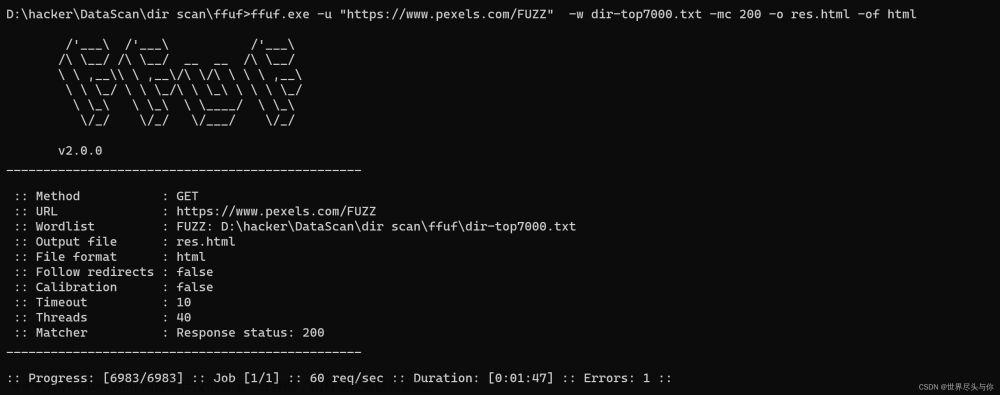两者都是定义在头文件<algorithm>里。用 二分查找的方法在一个排好序的数组中进行查找。既然是二分,时间复杂度就是O(logN)。
基础用法
upper_bound(begin, end, value)
在从小到大的排好序的数组中,在数组的 [begin, end) 区间中二分查找第一个大于value的数,找到返回该数字的地址,没找到则返回end。
lower_bound(begin, end, value)
在从小到大的排好序的数组中,在数组的 [begin, end) 区间中二分查找第一个大于等于value的数,找到返回该数字的地址,没找到则返回end。
用greater<type>()重载
upper_bound(begin, end, value, greater<int>())
在从大到小的排好序的数组中,在数组的 [begin, end) 区间中二分查找第一个小于value的数,找到返回该数字的地址,没找到则返回end。
lower_bound(begin, end, value, greater<int>())
在从大到小的排好序的数组中,在数组的 [begin, end) 区间中二分查找第一个小于等于value的数,找到返回该数字的地址,没找到则返回end。
前两部分的代码:
#include <iostream>
#include <vector>
#include <algorithm>
using namespace std;
int main() {
// 1.基础用法
vector<int> increasing = {1,2,3,4,5};
int pos = upper_bound(increasing.begin(), increasing.end(), 3) - increasing.begin();
cout << increasing[pos] << endl; // 4(第一个大于3的数)
pos = lower_bound(increasing.begin(), increasing.end(), 3) - increasing.begin();
cout << increasing[pos] << endl; // 3(第一个大于等于3的数)
bool res = upper_bound(increasing.begin(), increasing.end(), 5) == increasing.end();
cout << res << endl; // 1 (true,即:第一个大于5的数不存在)
// 2.greater重载
vector<int> decreasing = {5,4,3,2,1};
pos = upper_bound(decreasing.begin(), decreasing.end(), 3, greater<int>()) - decreasing.begin();
cout << decreasing[pos] << endl; // 2(第一个小于3的数)
pos = lower_bound(decreasing.begin(), decreasing.end(), 3, greater<int>()) - decreasing.begin();
cout << decreasing[pos] << endl; // 3(第一个小于等于3的数)
res = lower_bound(decreasing.begin(), decreasing.end(), 0, greater<int>()) == decreasing.end();
cout << res << endl; // 1 (true,即:第一个小于等于0的数不存在)
return 0;
}
到这里还是比较好理解的,不加greater是大于/大于等于,加上greater就是小于/小于等于。upper_bound是不带等号的,lower_bound就是带等号的。一般博客到这里就结束了,如果想要更加灵活的使用,那么请接着看。
进阶用法(自定义匿名函数)
upper_bound进阶
upper_bound(begin, end, value, cmp)
bool cmp(value, element)
upper_bound的第四个参数是自定义的匿名函数cmp,返回值为bool类型,cmp有两个参数,一个是value,对,你没看错,就是upper_bound的第3个参数value,另一个是element,也就是查找过程中与value比较的那个数。upper_bound返回的就是[begin, end)区间中第一个满足cmp(value, element)为true的数。下面看两个例子,注意看注释,方便理解。
pos = upper_bound(increasing.begin(), increasing.end(), 3, [](int value, int element) -> bool {
return value < element;
}) - increasing.begin(); // 等价于基础用法中的第1句
cout << increasing[pos] << endl; // 4(value是3,第一个大于value的数)
其中[](int value, int element) -> bool {return value < element;}就是匿名函数,对于c++匿名函数的用法这里就不说了,自行百度。
pos = upper_bound(increasing.begin(), increasing.end(), 3, [](int value, int element) -> bool {
return value <= element;
}) - increasing.begin(); // 等价于基础用法中的第2句
cout << increasing[pos] << endl; // 3(value是3,第一个大于等于value的数)
没想到,upper_bound竟然用出了lower_bound的效果!这就是自定义函数的优点了,使用灵活,这里只是举一个例子展示一下,对于更复杂的情况,比如在一个有序的vector<vector<int>>中,想查找第一个满足第2个元素大于value的vector,匿名函数就可以写成:
[](int value, vector<int> element) -> bool {return value < element[1];}
lower_bound进阶
lower_bound(begin, end, value, cmp)
bool cmp(element, value)
注意,lower_bound的匿名函数element和value的顺序反过来了!lower_bound返回的是[begin, end)区间中第一个使cmp(element, value)为false的数。
pos = lower_bound(increasing.begin(), increasing.end(), 3, [](int element, int value) -> bool {
return element < value;
}) - increasing.begin(); // 等价于基础用法中的第2句
cout << increasing[pos] << endl; // 3(value是3,第一个大于等于value的数)
pos = lower_bound(increasing.begin(), increasing.end(), 3, [](int element, int value) -> bool {
return element <= value;
}) - increasing.begin(); // 等价于基础用法中的第1句
cout << increasing[pos] << endl; // 4(value是3,第一个大于value的数)
可以看出,lower_bound也可以用出upper_bound的效果。对于更复杂的情况,读者可以自己探索。文章来源:https://www.toymoban.com/news/detail-582960.html
以上,任何一个用法都需要有序,否则无法进行二分查找。文章来源地址https://www.toymoban.com/news/detail-582960.html
所有代码
#include <iostream>
#include <vector>
#include <algorithm>
using namespace std;
int main() {
// 1.基础用法
vector<int> increasing = {1,2,3,4,5};
int pos = upper_bound(increasing.begin(), increasing.end(), 3) - increasing.begin();
cout << increasing[pos] << endl; // 4(第一个大于3的数)
pos = lower_bound(increasing.begin(), increasing.end(), 3) - increasing.begin();
cout << increasing[pos] << endl; // 3(第一个大于等于3的数)
bool res = upper_bound(increasing.begin(), increasing.end(), 5) == increasing.end();
cout << res << endl; // 1 (true,即:第一个大于5的数不存在)
// 2.greater重载
vector<int> decreasing = {5,4,3,2,1};
pos = upper_bound(decreasing.begin(), decreasing.end(), 3, greater<int>()) - decreasing.begin();
cout << decreasing[pos] << endl; // 2(第一个小于3的数)
pos = lower_bound(decreasing.begin(), decreasing.end(), 3, greater<int>()) - decreasing.begin();
cout << decreasing[pos] << endl; // 3(第一个小于等于3的数)
res = lower_bound(decreasing.begin(), decreasing.end(), 0, greater<int>()) == decreasing.end();
cout << res << endl; // 1 (true,即:第一个小于等于0的数不存在)
// 3.进阶用法
pos = upper_bound(increasing.begin(), increasing.end(), 3, [](int value, int element) -> bool {
return value < element;
}) - increasing.begin(); // 等价于基础用法中的第1句
cout << increasing[pos] << endl; // 4(value是3,第一个大于value的数)
pos = upper_bound(increasing.begin(), increasing.end(), 3, [](int value, int element) -> bool {
return value <= element;
}) - increasing.begin(); // 等价于基础用法中的第2句
cout << increasing[pos] << endl; // 3(value是3,第一个大于等于value的数)
pos = lower_bound(increasing.begin(), increasing.end(), 3, [](int element, int value) -> bool {
return element < value;
}) - increasing.begin(); // 等价于基础用法中的第2句
cout << increasing[pos] << endl; // 3(value是3,第一个大于等于value的数)
pos = lower_bound(increasing.begin(), increasing.end(), 3, [](int element, int value) -> bool {
return element <= value;
}) - increasing.begin(); // 等价于基础用法中的第1句
cout << increasing[pos] << endl; // 4(value是3,第一个大于value的数)
return 0;
}
到了这里,关于upper_bound和lower_bound用法(史上最全)的文章就介绍完了。如果您还想了解更多内容,请在右上角搜索TOY模板网以前的文章或继续浏览下面的相关文章,希望大家以后多多支持TOY模板网!












